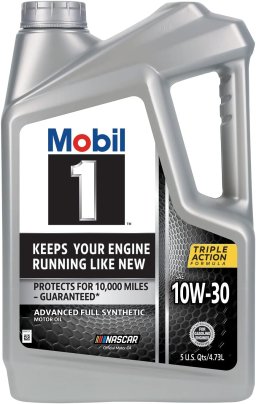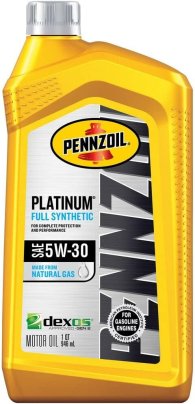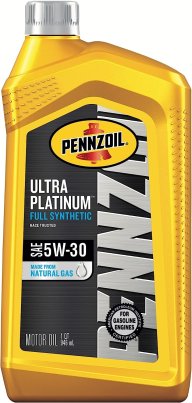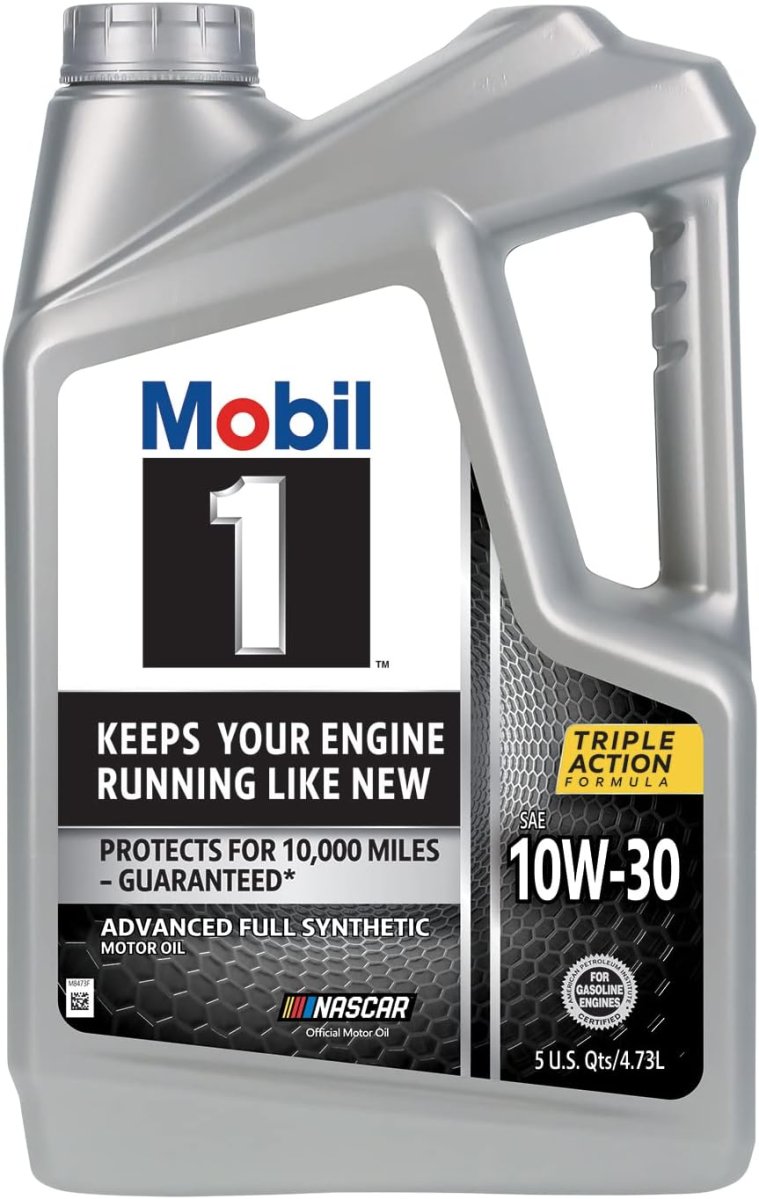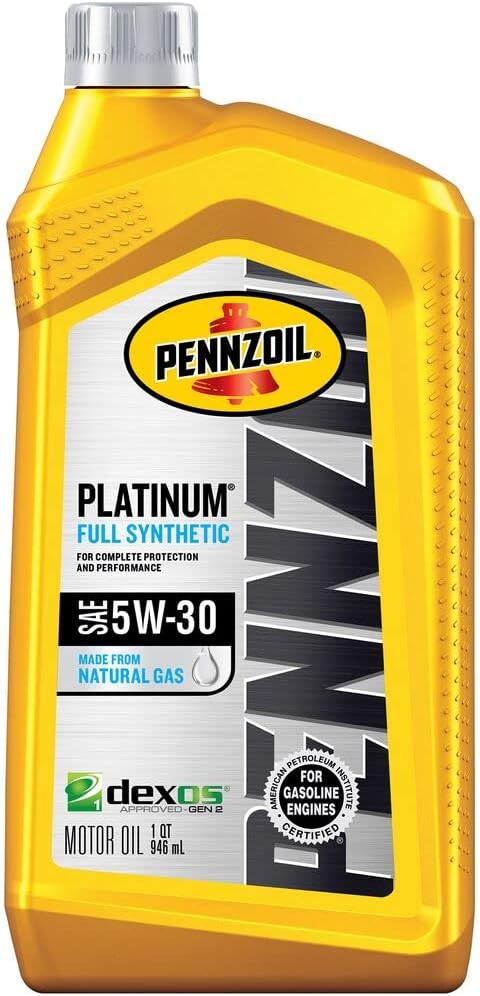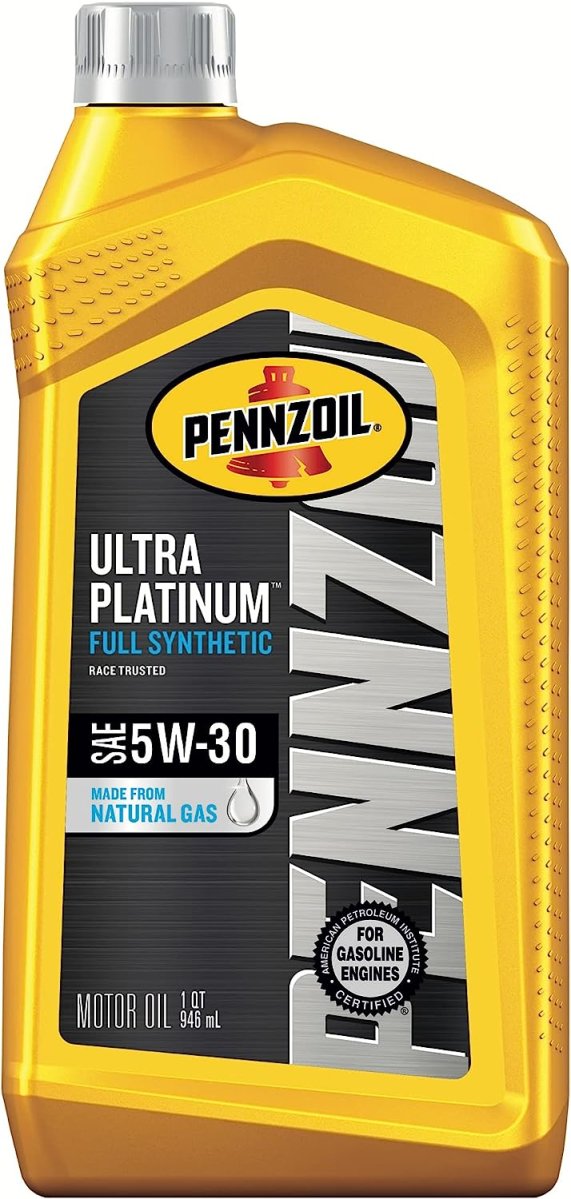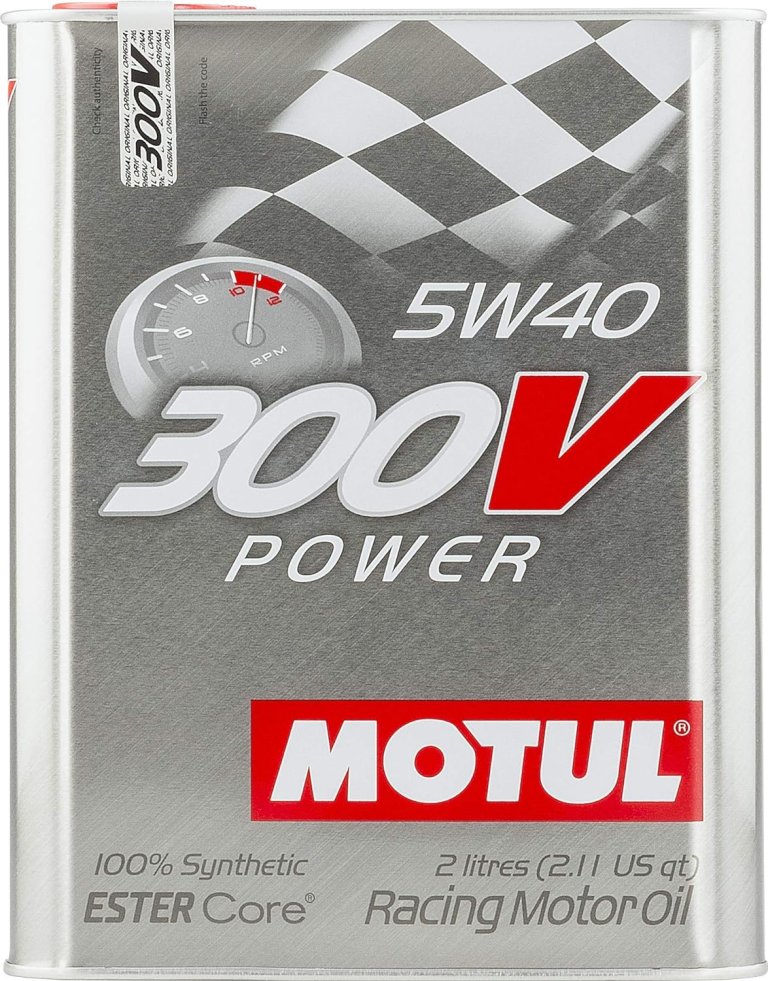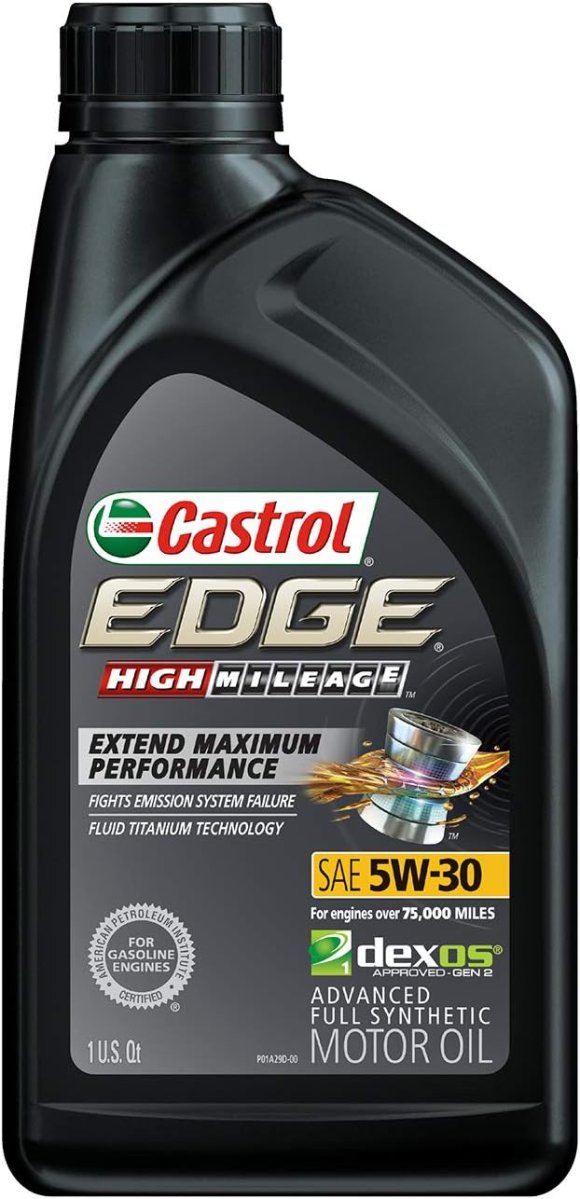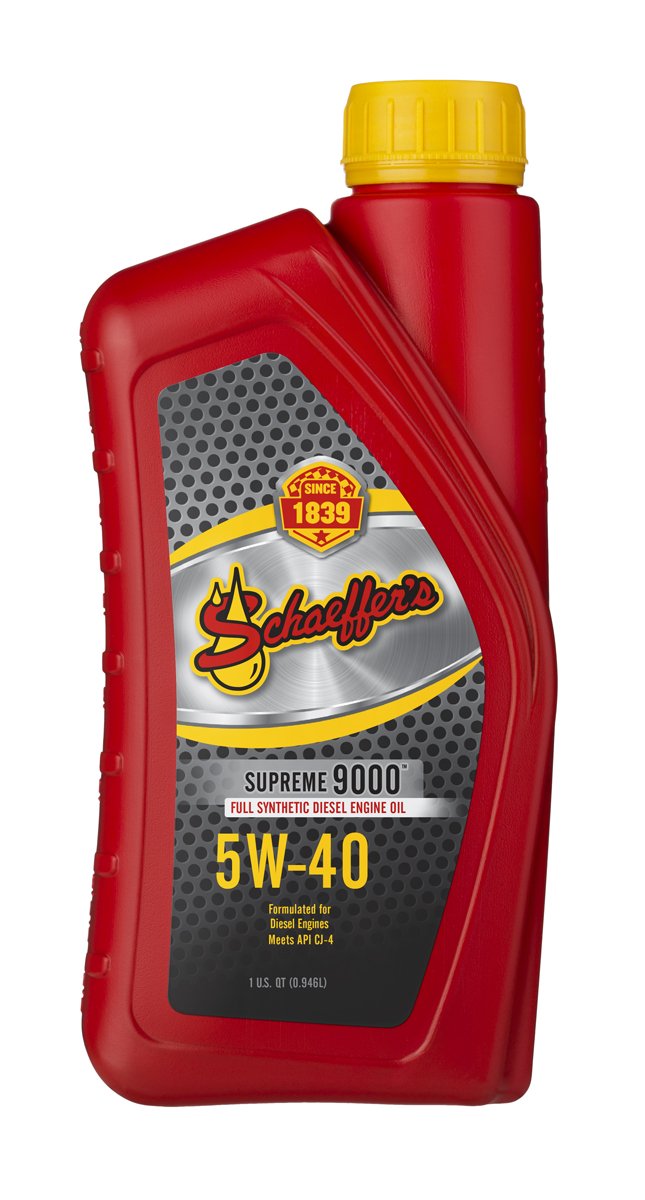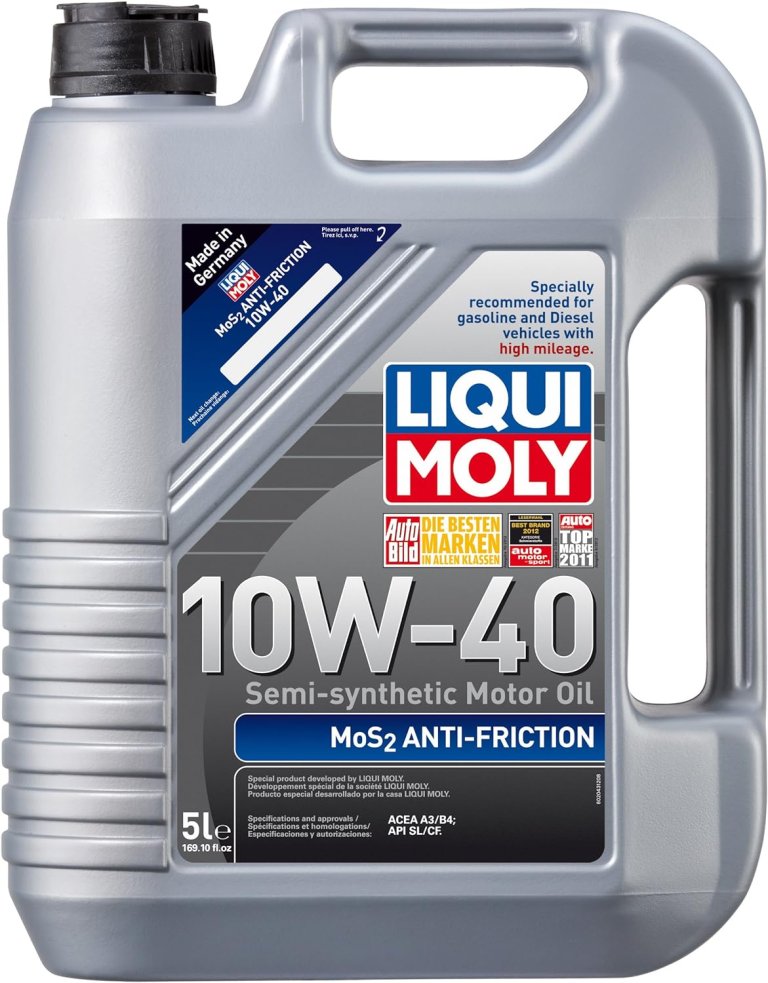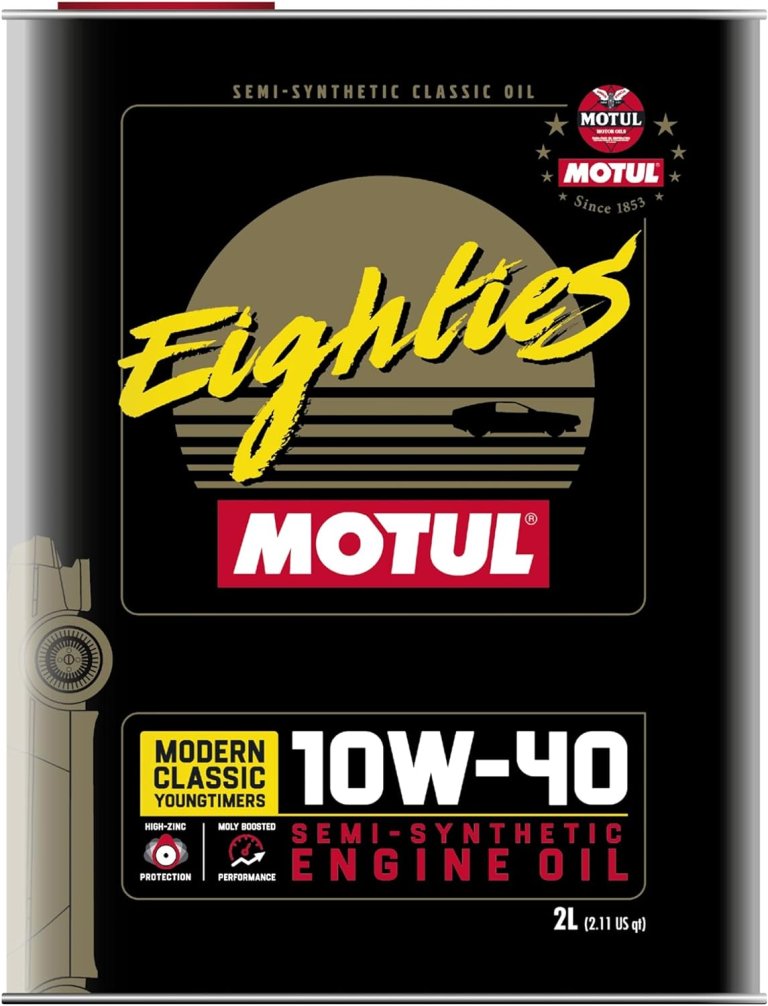We may earn revenue from the products available on this page and participate in affiliate programs. Learn more ›
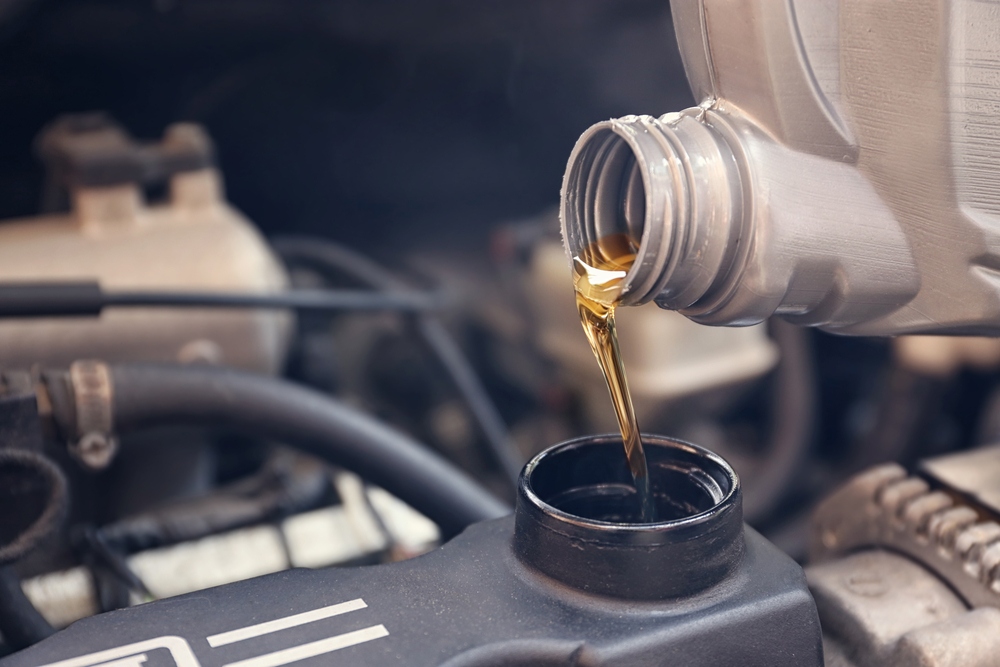
From 9-to-5 gridlock to race track tomfoolery, great synthetic motor oil will ensure your engine will never miss a beat. They’re typically more adaptable to various weather conditions than most conventional oils and loaded with additives to keep your engines clean and healthy for longer. Heck, I even run it in all my cars. Synthetic oil is arguably one of the most beneficial and influential innovations in automotive engineering, but it’s a heavily saturated market with a dizzying catalog to choose from. Don’t worry. We got you covered. From general-use oils fit for any application to honed-in specialty fluids for that certain something lurking in the back of your garage, we’ve listed the best synthetic oils for just about anything.
Summary List
- Best Overall: Mobil 1 Advanced Full Synthetic
- Best Value: Pennzoil Platinum
- Honorable Mention: Pennzoil Ultra Platinum
- Best For Ultra High-Performance/Motorsports: Motul 300V
- Best For High-Mileage Engines: Castrol Edge High Mileage
- Best For Diesel Vehicles: Schaeffer’s Supreme 9000-012S
- Best For Classic Vehicles: Liqui Moly MoS2 Anti-Friction
- Best For Modern-Retro Classics: Motul Eighties
Our Methodology
As journalists and fellow enthusiasts, we always aim to give the most informative yet honest takes in every guide, from tires to oil filters and more. And while we couldn’t source gallons of synthetic oil to test in a fleet of cars, that hasn’t stopped me from piecing together this guide through extensive research. While personal experience and preference are factors we consider, a ton of research goes into our selection to ensure this buying guide offers solid suggestions to our readers.
Best Synthetic Motor Oil Reviews & Recommendations
Best Overall
Mobil 1 Advanced Full Synthetic
See ItBest Value
Pennzoil Platinum
See ItHonorable Mention
Pennzoil Ultra Platinum
See ItBest For Ultra High-Performance/Motorsports
Motul 300V
See ItBest For High-Mileage Engines
Castrol Edge High Mileage
See ItBest for Diesel Vehicles
Schaeffer’s Supreme 9000-012S
See ItBest for Classic Vehicles
Liqui Moly MoS2 Anti-Friction
See ItBest for Modern-Retro Classics
Motul Eighties, Motul Nineties
See ItOur Verdict
Mobil 1 Advanced Full Synthetic earns top marks for its all-encompassing family of overengineered oils delivering infallible protection. Close behind is Pennzoil’s Ultra Platinum for delivering comparative levels of performance and notable all-weather performance in a formula that fits right at home in Ferraris just as well as it does in Fords. And, of course, the one-step-below Pennzoil Platinum serves as an excellent bargain for mimicking its premium stablemate at a far lower price.
Things to Consider Before Buying Synthetic Motor Oil
Cold Weather Rating
Part of measuring an oil’s viscosity is its cold weather or winter rating. In an oil rating, the “W” entails winter performance, and the number preceding it indicates how well it flows. The lower the number, the better that oil flows in extreme cold. Certain synthetics can be formulated to flow far better than conventional oil and even other synthetic formulas and can be rated as low as 0 (i.e., 0W-30). Most oils may come rated as 5W or 10W for their resiliency across cold and hot weather, but many new cars are designed and built to accept 0W synthetics for even greater winter performance.
Viscosity Rating
This is commonly referred to as the “weight” of an oil. This rating determines the oil’s thickness at average operating temperatures – usually 100 degrees Celsius or 212 degrees Fahrenheit. The higher the number, the thicker the oil. For example, 40-weight oil will be thicker than 30-weight oil, which is thicker than 20-weight oil, etc.
Most cars will have specific, manufacturer-determined viscosity ratings, and newer cars may be designed for thinner oils for more effortless flow and reduced fuel consumption. Octane-blooded enthusiasts, however, may switch to thicker oils for their ability to better resist the heat and pressures of high-performance applications. But this is a niche use case, so exercise caution.
Additives
Nearly all synthetic oils nowadays overflow with additives and detergents to clean your motor and resist degradation and foaming. As you could probably tell from the ceaseless consumer acclaim with nearly every product in this guide, just about any synthetic oil does its intended job nearly flawlessly. However, niche formulas may include a few more goodies to serve their purpose better.
ESTER Core technology from Motul uses carefully-chosen esters base oils to reduce frictional drag and improve engine performance without sacrificing resistance to heat and pressure. Classic and vintage car formulas will have high zinc contents for their anti-wear anti-oxidation properties and to help create a more resilient oil film better suited to the tolerances of older engines.
Synthetic Motor Oil Pricing
Nearly all general-use synthetic oils, whether purchased online or in-store, can be snagged for roughly $10 to $15 per quart or between $25 to $40 per one gallon or five-quart jug. Specialty formulas adapted for high-performance or collector classics may use extra additives to aid in heat resistance, long-term storage, etc., and therefore will typically cost more. Motul Eighties and Nineties semi-synthetic blends are a smidge below $30 for a two-quart can, while Motul 300V ranges between $35 to $40 for the same quantity.
FAQs
You’ve got questions. The Drive has answers.
A: While many synthetics can theoretically last up to 10,000 miles or more, changing your oil at those intervals isn’t necessarily the best practice. Synthetic oils are best utilized to better protect your engine during the factory-recommended interval, so it’s best to adhere to whatever mileage is specified.
A: If you had to top off your motor in emergencies, mixing oils is fine and won’t necessarily damage the engine. However, it’s advised against regularly mixing them as conventional oil can dilute synthetics and compromise their protection, reducing their ability to fight sludge or resist breaking down.
A: If dedicated recycling plants are too far from you, most auto parts stores and service shops will take in your used oil at little-to-no charge. Pop on in and ask what their procedures are, and they’ll often be able to recycle it on your behalf.
